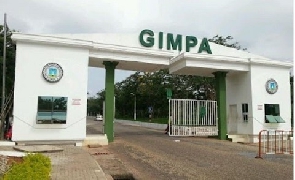In the wake of the outbreak of COVID-19, one of the greatest challenges facing the Government of Ghana (GoG) has been how to raise funds to meet the unbudgeted for expenditure that the pandemic portends. Getting taxpayers to fulfil their tax obligations without delay during these unprecedented times, without overly and unduly burdening them is also an uphill task.
These challenges are further exacerbated by the fact that borrowing, which is the easiest short term means of raising funds, will be detrimental in terms of the country’s debt to Gross Domestic Product (GDP) ratio in the long term.
On Wednesday, June 10, 2020, William Owusu Demitia Esq., Lecturer of the University of Ghana School of Law, delivered via Zoom, the sixth edition of the GIMPA Law and Ethics Web series on the theme: Tax Implications of COVID-19.
The learned lawyer articulated several strategies that government can adopt in its tax and revenue growth plan amidst the Covid-19 pandemic.
The Government of Ghana (GoG) according to Owusu Demitia, has come out with tax relief measures, including: extending the due dates for filing taxes from 4 months to 6 months after the end of the basis year; granting a remission of penalties on principal debts to taxpayers who redeem their outstanding debts due to the Ghana Revenue Authority (GRA) up to 30th June 2020; waiver of Value Added Tax (VAT) on donations of stock of equipment and goods for fighting COVID-19; and permitting the deduction of contributions and donations towards COVID-19 as allowable expenses for tax purposes.
However, given the current circumstances, only time can tell if the Ghanaian economy will be resilient enough to withstand the long-term impact of the pandemic.
In the meantime, the economy should be positioned to absorb the inevitable loses of revenue as a result of COVID-19.
It is thus recommended that the GoG should explore other means of raising revenue, as well as adopt technology to maximize the payment and collection of taxes.
Click to view details



Business News of Wednesday, 17 June 2020
Source: kasapafmonline.com

















